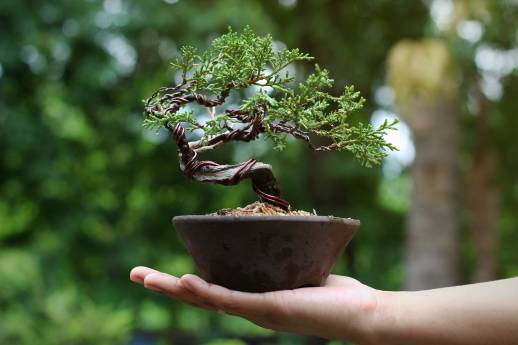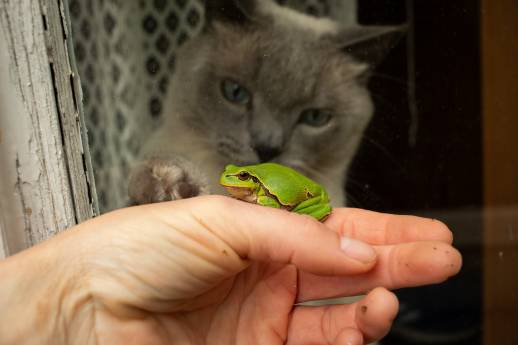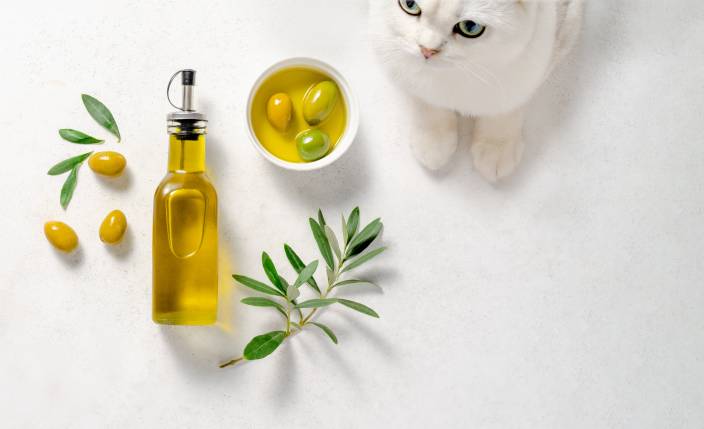Connect with a verified veterinarian in minutes. Licensed vets are available 24/7 to answer your questions. No need to worry about your furry family member.
Bonsai plants have become extremely popular in recent years. These beautiful plants fit in even small apartments and homes and make a stunning presentation in almost any room. However, cats may be drawn to eat these small plants. But what happens if a cat eats a Bonsai leaf? Can the Bonsai leaf make a cat sick?
Has your cat eaten a Bonsai leaf? Are you worried the Bonsai leaf will make your cat sick? If so, you’ve come to the right place. We understand it can be scary when your cat eats something like this.
We’ve put together some information about Bonsai leaves and whether they can make a cat sick. Let’s get started!
What is a Bonsai Leaf?
A Bonsai leaf comes from some type of Bonsai plant. A Bonsai plant is a Japanese term that refers to cultivating a miniature plant in a small pot or another shallow container. The plants used in this type of art are not genetically dwarfed plants. Instead, they are miniaturized through pruning, using wire, and more to allow the tree to grow to a certain size and shape.
The plants are usually grown in a shallow container, which restricts the plants’ roots and keeps the plant from storing food. The result is a miniaturized plant.
While the Bonsai plants are beautiful, what happens if a cat eats a Bonsai leaf? Can a Bonsai leaf make a cat sick?
Bonsai Leaves & Cats
The answer isn’t very straightforward because it depends on what plant the leaf came from. Some of the most popular Bonsai plants are toxic to cats, including:
- Fig
- Cherry
- Norfolk island pine
- Plum
- Baby jade
- Ambrosia Mexicana
- Azaleas
- Fern palm
- Australian ivy palm
- Australian pine
- Coontie palm
- Carboard palm
- Apricot
- Buddist pine
- Giant dracaena
- And more

Review symptoms, medications & behavior to keep your pets healthy with a Vet Online in just minutes.
Ask a Vet Live NowSymptoms of Bonsai Leaf Ingestion in Cats
You may notice these symptoms if your cat has eaten a Bonsai leaf:
- Skin irritation/burns/discoloration of the skin
- Coughing
- Lethargy
- Excessive drinking of water and urination
- Breathing problems
- Dilated pupils
- Vomiting
- Tremors/seizures
- Shivering
- Slow heart rate
- Diarrhea
- Gastrointestinal irritation
- Black stool
- Depression
If your cat shows any of these symptoms, call the vet immediately. This is an emergency.
Do not induce vomiting unless instructed to do so by the vet. Be sure to let the vet know what has happened and about what time your cat ate the Bonsai leaf. It’s also helpful to take a leaf with for the vet, so they can determine what plant your cat has eaten. If that’s not possible, take a picture of the plant with to the vet’s.
Treatment for Bonsai leaf ingestion depends on the type of plant leaf eaten and your cat’s symptoms.
The prognosis is best for cats who receive prompt medical treatment. So, make sure to get your feline companion to the vet as soon as possible. Her life may depend on it!
Connect with a verified veterinarian in minutes. Licensed vets are available 24/7 to answer your questions. No need to worry about your furry family member.

Julie
Julie is a graduate of the University of North Carolina, Wilmington, where she studied Animal science. Though contrary to the opinion of her parents she was meant to study pharmacy, but she was in love with animals especially cats. Julie currently works in an animal research institute (NGO) in California and loves spending quality time with her little cat. She has the passion for making research about animals, how they survive, their way of life among others and publishes it. Julie is also happily married with two kids.
Review symptoms, medications & behavior to keep your pets healthy with a Vet Online in just minutes.
Ask a Vet Live Now




